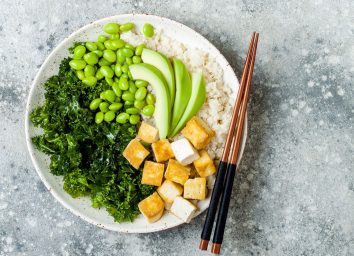Are Nitrates and Nitrites in Food Bad For You?

In recent years, you have likely heard of nitrates and nitrites in a negative light. Most notably, you recognize them as possibly harmful preservatives used in processed meat products. Although there may be some truth to this thought, there is much more to know about nitrates and nitrites before completely writing them off.
What are nitrates and nitrites?
All nitrates and nitrites contain a combination of nitrogen and oxygen atoms:
Nitrate: One nitrogen molecule bound to three oxygen molecules (NO3–)
Nitrites: One nitrogen molecule bound to two oxygen molecules (NO2-)
There are two sources of nitrates and nitrites used in the food supply: synthetic and natural.
Synthetic versions are produced in a lab. Non-synthetic versions of nitrates and nitrites are extracted and modified to be used as a "healthier" preservative in deli meat. These non-synthetic versions come from natural sources where nitrates and nitrites are naturally found, such as in vegetables like celery, leafy greens, and beets.
Why are nitrates and nitrites added to food?
Nitrates and nitrites can be found in many foods, including produce and meat. They are used in cured meat and jerky recipes as an antimicrobial food preservative and a food antioxidant to keep meats safe for consumption and to maintain their color, according to the NIH.
According to the USDA, "Nitrite also greatly delays the development of the Clostridium botulinum toxin (botulism); develops a cured-meat flavor; retards the development of rancidity, off-odors, and off-flavors during storage; and inhibits the development of a warmed-over flavor."
Why can nitrates and nitrites be harmful?
Because of the difference in atomic structure, nitrates and nitrites react differently in your body. The bacteria in the mouth and gut metabolizes the nitrates from food sources, converting them to nitrites.
From here, there are two reactions that occur during digestion that may be responsible for producing the harmful effects you hear about in the media. The variables that can impact the negative or neutral outcome of these nitrites are:
- The presence of protein
- The presence of antioxidants
Protein presence: When these newly produced nitrites are swallowed and come in contact with the acidic nature of the stomach, a new compound, called nitrous acid, is produced. This compound then reacts with amines from protein (remember, many nitrites are found in cured meats that contain high amounts of protein) to produce nitrosamines—a compound that has been found to have carcinogenic effects.
Antioxidant presence: The antioxidants that are naturally occurring in vegetables alongside the nitrates help to counterbalance possible carcinogenic compound development in the body, therefore, the nitrates found in fruits and vegetables aren't as worrisome for your health. However, the nitrites in cured meats that don't also come along with antioxidants and have the compounding effects of protein that make them more likely to produce nitrosamines, may have harmful effects on your health.
What about foods with nitrates? Does that make a difference?
The difference lies in if the compound is naturally occurring, like those found in beetroot and other vegetables, or added to a food item, like cured meats, during processing to limit the production and growth of bacteria that could cause foodborne illness.
The health benefits related to nitrates, especially those naturally occurring in produce are well documented as foods that lower blood pressure and improving athletic performance. In both cases, the vessel-dilating effects of nitrates allow vascular smooth muscles to relax and improve oxygen delivery to the heart.
You should not be concerned about the naturally occurring nitrates and nitrites in your spinach salad, beetroot powder, or celery juice.
In fact, if you have high blood pressure, increasing the amounts of fruits and vegetables you consume may actually be beneficial because of the nitrates and other naturally occurring compounds and micronutrients.
What should you know about nitrates in food?
So, what does all of this mean for your food choices?
If you are to choose cured meat, like bacon, sausage or deli meat, look for those without any forms of nitrate or nitrite or ones that use a natural form of nitrate, like celery extract, compared to synthetic sodium nitrite. Even better, some manufacturers are adding antioxidants, like vitamins C or E, to these nitrate/nitrate-containing processed foods to aid in the reduction of carcinogen production.
To reduce as much risk as possible, you are best off limiting animal products containing any form of nitrate or nitrite, and instead of swapping for plant-based protein that eliminates the discussion of synthetic nitrites and will naturally increase your antioxidant consumption and combats many carcinogens, not just those related to nitrates and nitrites.
Conclusion
There is still plenty for us to learn on this topic. So, following a well-rounded diet that limits all processed products, meat and otherwise, and maximizes food in its original form, with few added ingredients, will likely yield the most benefits.








